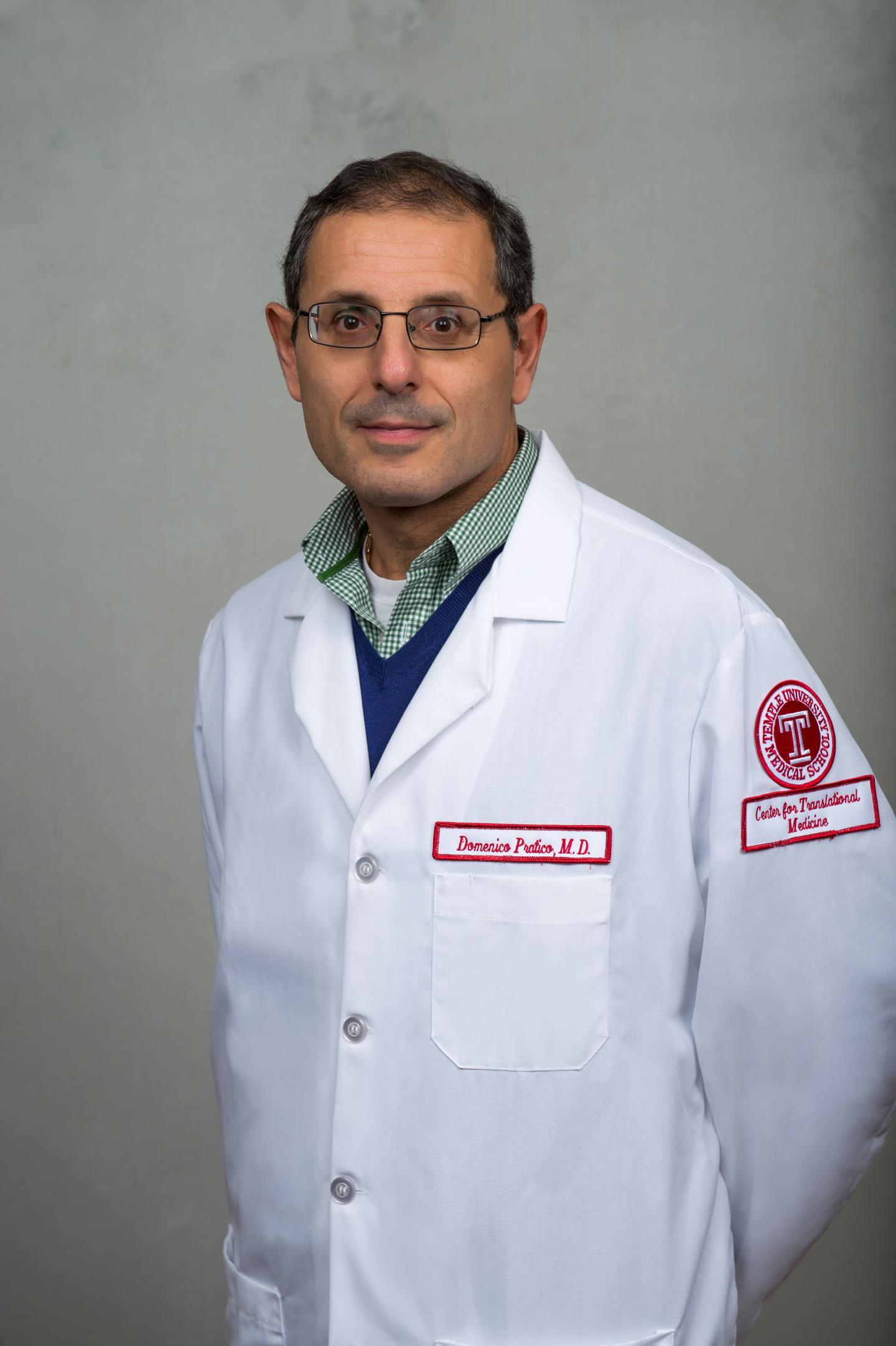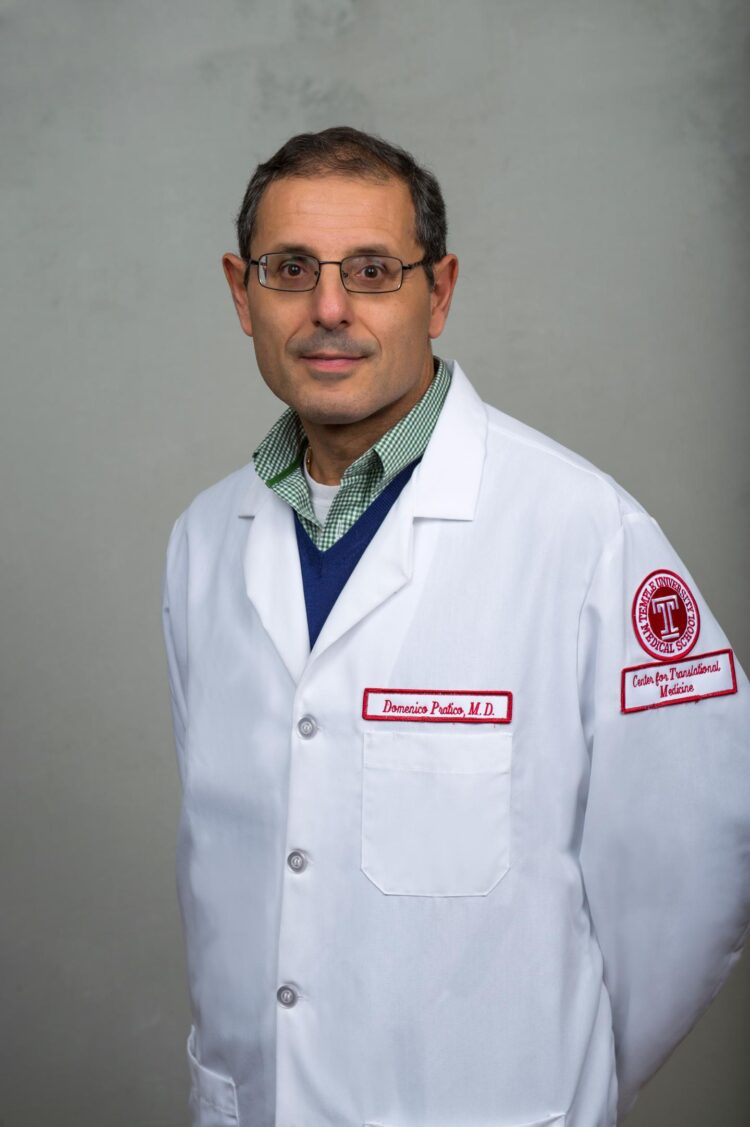Grant award will allow Alzheimer’s Center at Temple University to lead collaborative investigation into vascular risk factors in dementia

Credit: Lewis Katz School of Medicine at Temple University
(Philadelphia, PA) – Alzheimer’s disease is the most common form of dementia in the elderly. Memory loss and difficulty thinking worsen progressively, with some patients eventually becoming delusional, disoriented, and vulnerable to mood swings and depression. Finding ways to slow or reverse this progression, or even prevent symptoms from developing in the first place, are major goals in Alzheimer’s research.
Now, thanks to a new $3.8 million grant from the Pennsylvania Department of Health, researchers at the Alzheimer’s Center at Temple (ACT) will have an unprecedented opportunity to explore cardiovascular risk factors in Alzheimer’s disease. The grant is the first major collaborative award for the Alzheimer’s Center at Temple, which is poised to become a national leader in dementia research.
“We are very excited to have the opportunity, through funding from the Pennsylvania Department of Health, to investigate the effects of cardiovascular risk factors on the development of Alzheimer’s pathology,” said Domenico Praticò, MD, Scott Richards North Star Foundation Chair for Alzheimer’s Research, Professor in the Departments of Pharmacology and Microbiology, and Director of ACT at the Lewis Katz School of Medicine at Temple University (LKSOM). “Vascular health appears to have an important role in Alzheimer’s disease, but basic understanding of its impact has only begun to emerge.”
Dr. Praticò and Silvia Fossati, PhD, Associate Professor of Pharmacology and Associate Director of the Alzheimer’s Center at Temple, will co-lead the basic research components of the project, which entail studies in cell and animal models. Dr. Fossati and William Zirker, MD, Chief of Geriatric Medicine at Crozer-Keystone Health, along with clinical outreach lead Laura N. Gitlin, PhD, FGSA, FAAN, Applied Research Sociologist and Dean of the College of Nursing and Health Professions at Drexel University, will explore clinical aspects of cardiovascular health and dementia in human patients. Jason Chein, PhD, Professor of Psychology at Temple University and Director of Temple’s Imaging Center (TUBRIC), and Ingrid Olson, PhD, Professor of Psychology at Temple University, will carry out magnetic resonance imaging (MRI) studies in patients.
“By bringing basic research from preclinical studies together with clinical investigation, we can gain significant insight into how neurovascular dysfunction correlates with cognitive outcome in Alzheimer’s disease,” Dr. Praticò said.
Alzheimer’s disease is characterized by the accumulation in the brain of harmful proteins, particularly amyloid plaques and tau tangles. The existence of damage to blood vessels in the brain, along with the presence of harmful protein deposits in Alzheimer’s patients has raised new questions about relationships between cardiovascular health and cognitive health.
A key question is whether vascular damage comes before or after the development of amyloid plaques and tau tangles in the brain. Dr. Praticò and Dr. Fossati hope to answer this question by implementing a comprehensive approach that combines cell and animal models of Alzheimer’s disease, as well as patient-oriented clinical research. These studies are expected to shed light on the effects of vascular function on neuroinflammation, the ability of neurons to communicate, and neurovascular integrity, and on the effects of cardiovascular risk factors, such as hypertension, on cognitive impairment. The researchers also plan to test a treatment in animals that could someday be used to protect against neurovascular damage and help prevent Alzheimer’s disease in humans.
In the clinical component of the project, the researchers will evaluate the effects of cardiovascular risk factors, including hypertension and elevated levels of homocysteine in the blood, in individuals with normal cognitive function and in subjects with mild cognitive impairment and Alzheimer’s disease. Changes in MRI measures and blood biomarkers associated with vascular abnormalities in the brain will be examined in relation to cognitive outcome, which could yield new information about how cardiovascular risk factors contribute to progressive memory decline. With this insight, the researchers hope to identify readily available and effective preventative strategies for Alzheimer’s disease that center on maintaining cardiovascular health.
A fourth part of the project, co-led by Dr. Praticò and Patricia A. Joseph, PhD, Professor of Psychology and Human Services and Dean of Faculty at Lincoln University, is focused on training and education, with internship opportunities provided at Temple for minority undergraduate students from Lincoln who plan to pursue careers in Alzheimer’s research and medicine. “We are very pleased to be able to contribute to the advancement of education for future researchers and clinicians in the field of dementia medicine,” Dr. Praticò added.
###
About Temple Health
Temple University Health System (TUHS) is a $2.2 billion academic health system dedicated to providing access to quality patient care and supporting excellence in medical education and research. The Health System consists of Temple University Hospital (TUH); TUH-Episcopal Campus; TUH-Jeanes Campus; TUH-Northeastern Campus; The Hospital of Fox Chase Cancer Center and Affiliates, an NCI-designated comprehensive cancer center; Temple Transport Team, a ground and air-ambulance company; Temple Physicians, Inc., a network of community-based specialty and primary-care physician practices; and Temple Faculty Practice Plan, Inc., TUHS’s physician practice plan comprised of more than 500 full-time and part-time academic physicians in 20 clinical departments. TUHS is affiliated with the Lewis Katz School of Medicine at Temple University.
Temple Health refers to the health, education and research activities carried out by the affiliates of Temple University Health System (TUHS) and by the Katz School of Medicine. TUHS neither provides nor controls the provision of health care. All health care is provided by its member organizations or independent health care providers affiliated with TUHS member organizations. Each TUHS member organization is owned and operated pursuant to its governing documents.
It is the policy of Temple University Health System that there shall be no exclusion from, or participation in, and no one denied the benefits of, the delivery of quality medical care on the basis of race, ethnicity, religion, sexual orientation, gender, gender identity/expression, disability, age, ancestry, color, national origin, physical ability, level of education, or source of payment.
Media Contact
Jeremy Walter
[email protected]
Original Source
https:/





